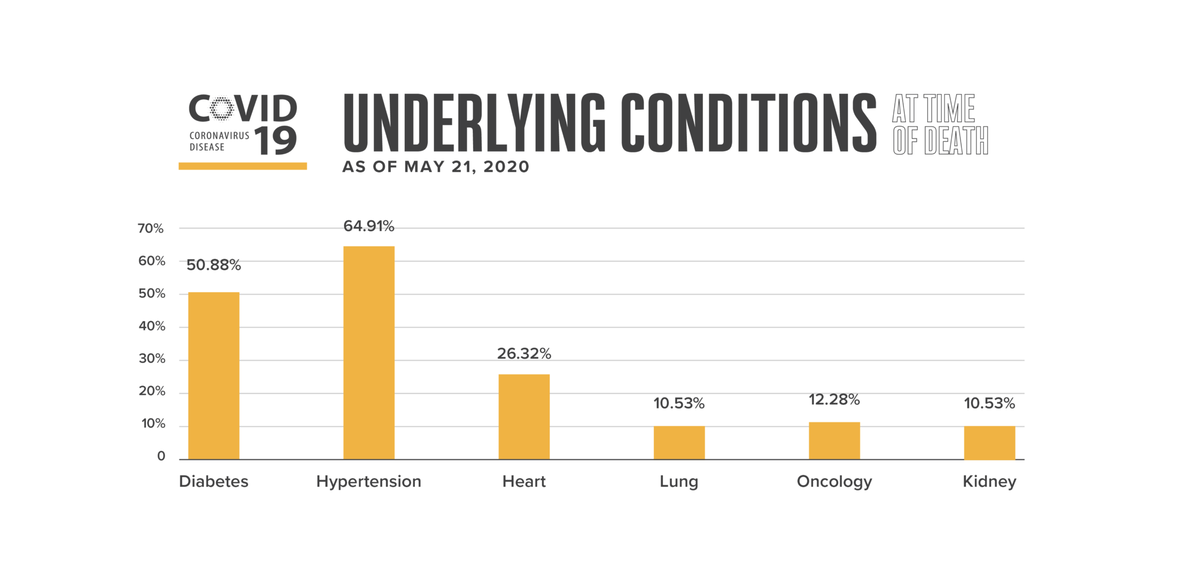Hypertension, diabetes are top underlying contributors to El Paso’s Covid-19 deaths
EL PASO, Texas -- Underlying health conditions continue to make things worse for patients who have contracted Covid-19. According to data provided by city/county health officials, a vast majority of patients who have died from the virus in El Paso had hypertension and diabetes.
As of this week, 65 percent of patients had hypertension, while 51 percent had diabetes. Dr. Hector Ocaranza, the city/county health expert, told ABC-7 each underlying health condition a deceased patient has is counted as one condition separately by the the health department, which is why the total percentage of all the underlying health conditions listed by the city/county does not add up to 100 percent.
Dr. Ocaranza added that 147 diabetic patients, 178 patients with hypertension and 23 patients with heart disease have recovered from the virus so far.

According to the Paso Del Norte Health Foundation, in 2017 about 14 percent of adults in El Paso had diabetes, close to 94,000 people.
Dr. Anthony Catinella with Texas Tech Physicians of El Paso said that when diabetes is poorly controlled, high fat content and high blood sugar create a chronic inflammatory state that's directed against one's own body. "In addition, the blood cells that fight off faction become very sluggish, they don't react in quite the same way," Dr. Catinella explained, making it harder for the body to get rid of the infection.
Catinella also said the virus creates what's known as a cytokine storm. According to Catinella, cytokines are chemicals released by the body to clear out a virus, "but in the case of Covid-19, it becomes an uncoordinated, chaotic, amplified reaction and these chemicals end up causing problems against the lung and other organs of the body.
"Now with someone with diabetes, the cytokines are already somewhat activated and so they may become more so when the Covid virus attacks them," he indicated.
Dr. Garima Mathur, chief program officer with the El Paso Diabetes Association, said she's had several patients with diabetes contact her about how they can better take care of themselves during the pandemic.
"Just because you have diabetes, (doesn't mean) that you will end up having Covid-19, or that you will end up having complications or you will not survive,” Dr. Mathur said.
On top of social distancing and practicing good hygiene, Mathur said if a patient is able to manage their blood sugar between a range of 80 to 140, 160 maximum, the chances of contracting the virus "probably are low" and the chances of recovery, if you do, are much higher.
Dr. Mathur and Dr. Catinella both told ABC-7 that the most important thing a patient with underlying health conditions can do is visit their doctor to help manage their condition.
To learn more about the El Paso Diabetes Association and the educational resources they provide for diabetics, click here.
